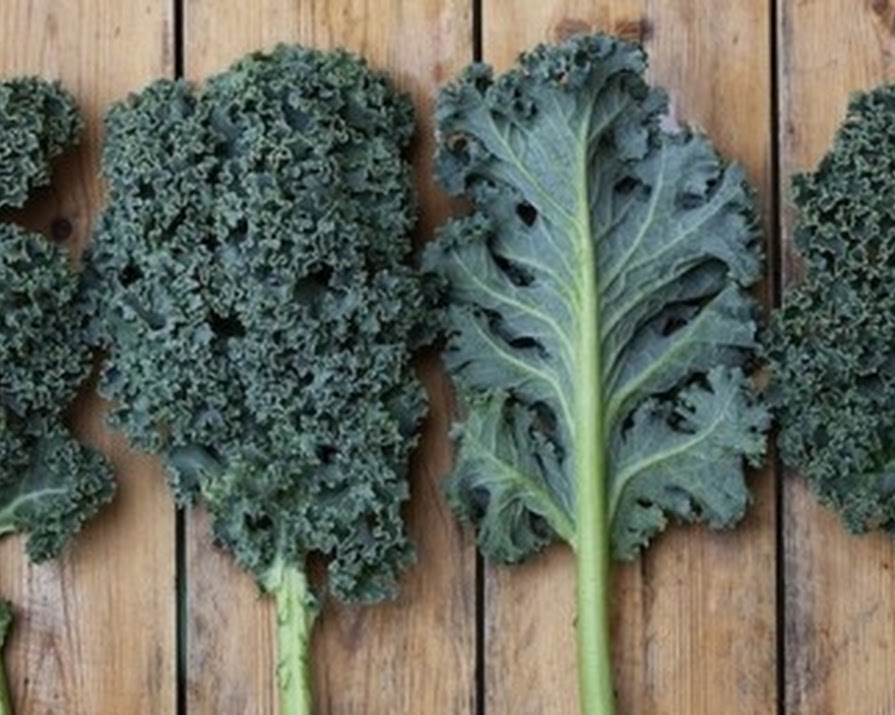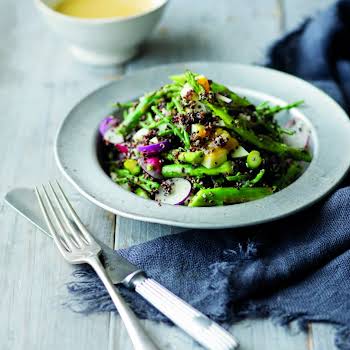
By IMAGE
31st Oct 2014
31st Oct 2014
We are probably all feeling the colder weather and darker evenings of autumn draw in these days, but there is an upside: the opportunity to adjust your recipes to include some delicious seasonal food.
Foods in-season are at their very best, in terms of taste, freshness and nutritional value. You can also support local farmers by buying local foods in season rather than imported foods at the supermarket (with the welcome side-effects of supporting local jobs and reducing your carbon footprint). And if that’s not enough to tempt you, consider this: in-season foods are often cheaper than out-of-season foods.
While there are many different types of foods in season at this time of year in Ireland, here we’ll focus on one that is of particular interest to our readers: super foods.
So what are super foods? Definitions vary, but basically a food that is ‘super’ has high levels of:
Phytonutrients: Also known as phytochemicals, phytonutrients are natural bioactive compounds that work together with vitamins, minerals, and fiber to promote good health. Phytonutrients contain anti-inflammatory agents that stimulate the immune system, positively affect hormones, and act as antibacterial, anti-viral agents.
“Eessential” nutrients: As their name suggests, essential nutrients are nutrients that the body can’t produce on its own, but needs in order to function. These essential nutrients include vitamins, minerals, essential fatty acids, and essential amino acids. Suffice it to say, super foods are packed with this stuff.
Take a peek at these five super foods that are in season in Ireland during October and November:
KALE
Kale comes into season in October. This leafy cruciferous vegetable is an excellent source of anti-oxidants, vitamins A, C, K and minerals including iron, potassium, phosphorous, and magnesium. It has more calcium than milk or spinach, and because of its very low oxalate content, the calcium and iron level are much more absorbable in our digestive system.
Benefits of eating kale can include a lower risk of cancer, asthma and high blood pressure, as well as improved bone health.
APPLES

Packed with antioxidants, especially vitamin C – one apple contains 14% of your daily recommended intake.
Apples contain a soluble fibre called pectin that can help lower cholesterol levels, cleanse the digestive system and help boost the immune system (an-apple-a-day and so forth?)
Apples are considered a low-GI (glycemic index) food, meaning they have a more stabilizing effect on blood sugar than other foods. Benefits can include weight control, lung and heart health.
BRUSSELS SPROUTS

Not always a favourite (especially for kids), but this little vegetable is a powerhouse of antioxidants that are believed to offer protection from prostate, colon, and endometrial cancer. It is also a great source of folate, vitamins C, A, K, and potassium. They are also considered low-GI vegetables that can aid in weight loss.
The key to great Brussels sprouts is to not overcook them. Try halving or quartering them and steaming for 5 minutes (until not-quite-tender), then roast in the oven, or stir-fry with red onions and mustard seeds and a pinch of sea salt and black pepper.
PUMPKIN

Pumpkins – a staple in autumn months – are loaded with the antioxidant beta-carotene, which is thought to help promote vitamin A production. They are also loaded with potassium. And by the way, they taste great (especially in pie).
POMEGRANATE

If you’re focused on longevity, look no further than the pomegranate. While the seeds are a pain-in-the-you-know-what to extract, the nutritional benefits make it worth the struggle.
Pomegranate seeds are shown to be a good source of soluble and insoluble dietary fibers, which aid in good digestion and bowel movements. They are also a good source of vitamin C, vital B-complex vitamins such as pantothenic acid (vitamin B-5), foliates, pyridoxine, vitamin K, and minerals like calcium, copper, potassium, and manganese.
Some positive benefits of pomengrates are believed to include immune support, inhibition of abnormal platelet aggregation (which can lead to heart attacks, strokes and embolic disease), lower cholesterol and blood pressure. These little wonder-seeds are also thought to relieve and protect against depression and osteoporosis.
These are just a few examples of the great seasonal super foods currently available in Ireland – there are many more out there to explore and enjoy. Go on, your tummy, environment and pocket will thank you.
***This post is solely for informational purposes. It is not intended nor implied to be a substitute for medical advice. Before undertaking any course of treatment or dietary changes, you should seek the advice of your physician or other?health care provider.
Kaman Ryan www.kamanryan.com
Kaman’s Bio: Now living in Dublin, Kaman has been working in the Nutrition, Fitness and Wellness industries in New York City for over a decade. As a certified personal trainer, corrective exercise specialist, holistic health coach, and stay-at-home mom, she fuses her knowledge and experience to coach clients on how to live healthier, more fulfilling lives.






















